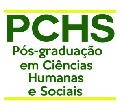Banca de QUALIFICAÇÃO: CAROLINA ALAMINO FÉLIX DE MORAES
Uma banca de QUALIFICAÇÃO de MESTRADO foi cadastrada pelo programa.STUDENT : CAROLINA ALAMINO FÉLIX DE MORAES
DATE: 07/12/2022
TIME: 16:00
LOCAL: modo remoto
TITLE:
Access to oral health as a citizenship mechanism: a study based on the Brasil Sorridente programPAGES: 34
BIG AREA: Ciências Sociais Aplicadas
AREA: Administração
SUBÁREA: Administração Pública
SUMMARY:
The Federal Constitution provides, in its article 196, that health is a right of all and a duty of the State. The same device also advocates that social and economic policies should promote universal and equal access to actions and services for their promotion and recovery. Despite the clarity of the constitutional mandate, in force since 1988, until the end of the 20th century, little was done for the oral health of Brazilians.
Dental care, considered a non-priority health care sector and a real privilege for the few, was until 2003 relegated to occasional and ineffective public actions. In 2003, the country had 30 million people with missing teeth, among which 8 million would need a complete prosthesis. It is a veritable homeland of toothless people, a dramatic condition that, in addition to abstract numbers, as a dental surgeon who provides services to labor unions, I see in the concrete faces of those I see on a daily basis. In the same year, 2003, the Brasil Sorridente program was launched, within the framework of policies to combat hunger inaugurated by the government of President Luis Inácio Lula da Silva. It was understood that it was not enough to give food to Brazilians – it was also necessary to provide conditions for them to chew.
It is in this context that this research is inserted, proposing to investigate the characteristics of this original public health care policy, to inquire about its impacts at the macro level but also at the individual level and, finally, to point out the current situation of the program as well as suggest its limits and other development possibilities.
The title of this work is currently defined as “Access to oral health as a citizenship mechanism: a study based on the Brasil Sorridente program”. And it is proposed, as a research problem, to address the following question: “what are the specificities in terms of public policies of the Brasil Sorridente program and to what extent did it represent an impact on the lives of Brazilians?”
As a general objective of the research, it was defined to verify the relationship between the oral health of Brazilians and public policies, investigating especially the situation of tooth loss and other associated situations of those assisted by the Brasil Sorridente program. And, as specific objectives: to investigate the effectiveness of access to dental treatment in primary care through interviews with users and dentists; discover the effects of care in relation to users' expectations and reality; to verify how much assistance within the framework of the Brasil Sorridente program contributes to returning phonetic, aesthetic and functional functions to users; and, finally, contribute to reflections on the subject for a possible improvement of the proposed practices.
Two hypotheses were also elaborated, as research findings that are visible: first, that the impacts of SUS users assisted by the Brasil Sorridente program are of a physical and emotional nature; and secondly, despite the increase in the number of dental care units in the SUS as a result of the Brasil Sorridente program, care is still not sufficient to meet the demand for these services, nor is it efficient in terms of preventing tooth loss or rehabilitate the oral health of users as it could be if there were more investments.
It is with the objective of developing this research presented above that this work is elaborated. The content of the material presented here, prepared for the purpose of qualifying the master's thesis being developed in the Graduate Program in Human and Social Sciences (PCHS-UFABC), is composed of four sections: the first, consisting of this presentation, contextualizes the theme and presents the research intention; the second presents the structure of the dissertation; the third brings the first developed chapter; and the fourth and last makes brief considerations on the following chapters.
COMMITTEE MEMBERS:
Presidente - Interno ao Programa - 2419487 - ROBERTA GUIMARAES PERES
Membro Titular - Examinador(a) Externo ao Programa - 2226636 - MARIA LUIZA LEVI PAHIM
Membro Titular - Examinador(a) Externo à Instituição - GABRIELLE KÖLLING - USCS




